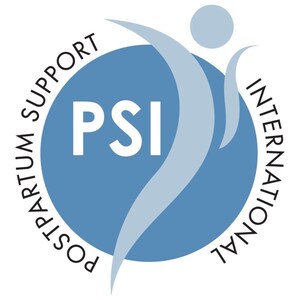
Tully Isn't Real - But Postpartum Depression Sure Is
Statement by Ann Smith, Certified Nurse Midwife, President - Postpartum Support International
PORTLAND, Ore., May 2, 2018 /PRNewswire/ -- The film Tully, starring Charlize Theron and Mackenzie Davis, has been greatly anticipated by audiences hoping for an honest look at motherhood. The protagonist, Marlo, played by Theron, has recently given birth to her third child and the story focuses largely on her relationship with a baby nurse named Tully, who shows up at her door—as if by magic.
But it isn't magic. It's the fantasy of an exhausted mom. Because Tully isn't real. She is imagined by Marlo - just one of several symptoms that suggest she may be suffering from some form of postpartum mood disorder, possibly even psychosis.
I am grateful that maternal mental health and postpartum complications are being vividly portrayed by the Hollywood community. Postpartum depression, postpartum psychosis, and the range of perinatal mental health complications affect nearly a million new mothers every year. But the film does not tell the whole story.
In one scene, there is mention that Charlize Theron's character had a bit of depression following the birth of the previous baby. As a Certified Nurse Midwife, here's what I wanted to see next. I wanted to see her be screened, to get the treatment and the support she needed so that she can get well.
For so long, the very real mental health issues women face have been ignored and brushed under the proverbial rug. This is exactly the scenario mental health advocates, including Postpartum Support International, have worked so hard to remedy. We can no longer ignore postpartum depression. Just ask the 1 in 7 mothers who experience it – it is very real, and it can be overwhelming, destructive to families and potentially life threatening if not treated. Fortunately, help is available and, with treatment, mothers and their families can and will get better. Not with magical thinking, but with proven interventions – peer support, psychotherapy and sometimes medication.
Here's the good news. While Tully may have blurred some important elements, it presents all of us with an opportunity to share our stories and get informed about perinatal mood and anxiety disorders. The questions raised in Tully are nuanced and complex, and I hope it prompts a nationwide discussion to finally bring these issues out of the shadows.
Some who have survived maternal mental illness may feel a sense of anger that the film does not reflect their own experiences with a legitimate illness. PSI, and organizations like it, can help moms and families navigate the confusing and frustrating aftermath of seeing a film that, however beautiful, might trigger strong emotion or even trauma.
Together, we can break the stigma of mental illness and, most importantly, help people get better. Let's make sure that, in the real world, we are talking about perinatal mental illness -- recognizing that it is a real disease, one that is treatable but only if we confront it head on.
Postpartum Support International is the leading organization dedicated to perinatal mood disorders, providing support to moms and families and trainings to providers. We are available and ready to help all families struggling to cope with pregnancy related mental health complications. For a listing of our resources for moms, visit http://www.postpartum.net/learn-more/help-for-moms/.
Contact:
Lianne Swanson
503-894-9453
[email protected]
SOURCE Postpartum Support International





Share this article